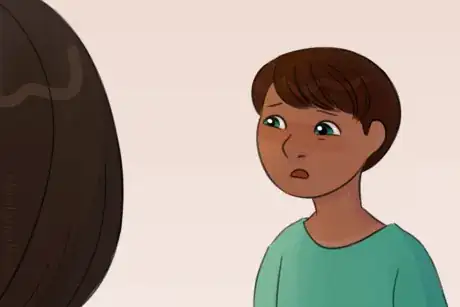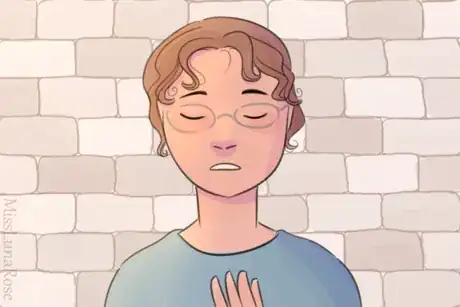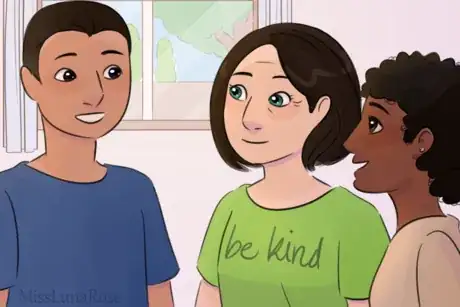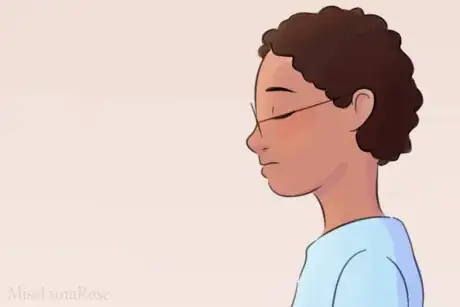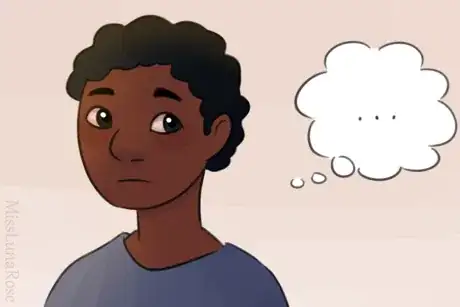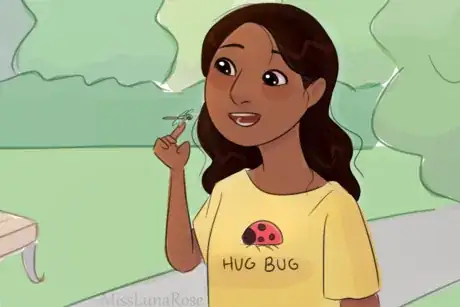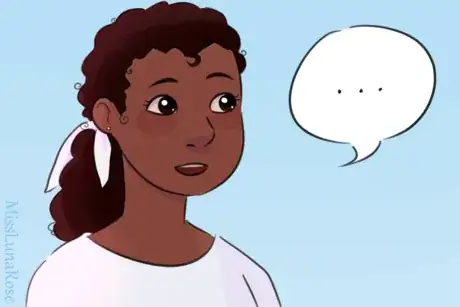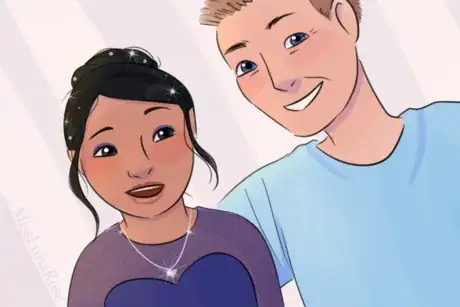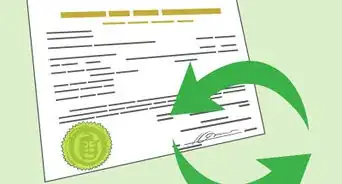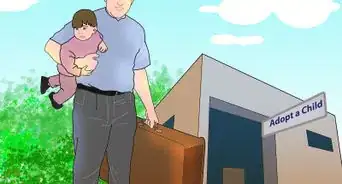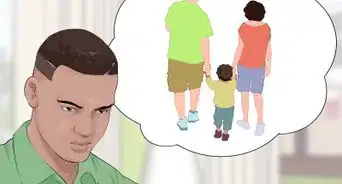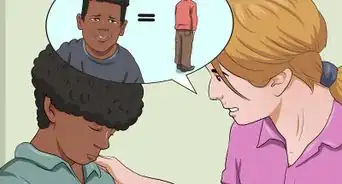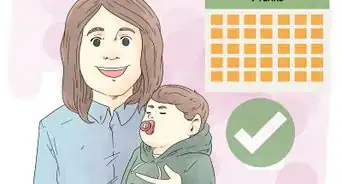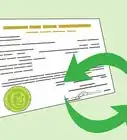This article was co-authored by Klare Heston, LCSW. Klare Heston is a Licensed Independent Clinical Social Worker based in Cleveland, Ohio. With experience in academic counseling and clinical supervision, Klare received her Master of Social Work from the Virginia Commonwealth University in 1983. She also holds a 2-Year Post-Graduate Certificate from the Gestalt Institute of Cleveland, as well as certification in Family Therapy, Supervision, Mediation, and Trauma Recovery and Treatment (EMDR).
There are 15 references cited in this article, which can be found at the bottom of the page.
This article has been viewed 48,688 times.
For many adoptees, coming to terms with being adopted is a challenging process. Confusion, grief, and self-doubt are completely normal, so don’t feel ashamed if you feel these or any other powerful emotions. Give yourself permission to experience these feelings, and share them with trusted friends and relatives. You might also find it helpful to read about other adoptees’ experiences, talk to a counselor, or join a local adoption support group.
Steps
Finding out that You’re Adopted
-
1Talk about your feelings with your family and friends. It’s perfectly normal to feel confused, shocked, and overwhelmed after learning that you’re adopted. Allow yourself to experience these emotions, and share them with people you trust.[1]
- You might feel guilty or nervous about sharing conflicted feelings with your adopted family, but try to put these feelings aside. You don't have to hide your feelings and struggle with your emotions on your own.[2]
- Try telling your adopted parents, "I'm feeling strong emotions about being adopted, but please don't feel hurt that I'm sharing them with you. I want to be honest about my feelings, and talking to you about them is helpful."
-
2Try to be understanding if you didn’t find out until later in life. Do your best to understand your parents’ intentions if they hid the fact that they adopted you. Most of the time, parents have their adopted children’s best interests in mind when they withhold information about the adoption.[3]
- It’s normal to feel shocked, sad, or angry if you found out about your adoption as a teenager or adult. Talk to them when you're calm, and be honest about your emotions with your parents.
- When you approach them, try saying, "I understand that you might have had your reasons, but I wish you'd have told me when I was younger. I feel upset that you kept me in the dark about something so important for so long."
- Give them the opportunity to explain why they didn’t want to tell you. Ask, "Can you tell me about your reasons for not telling me? It would help me see things from your perspective."
Advertisement -
3Read books and articles by other adoptees. Find memoirs, essays, blogs, and other publications written about adoptees who came to terms with their adoption story. Learning about how other adoptees cope can help you process your own emotions.[4]
- In addition to written sources, you can also check out documentaries and films about being adopted.[5]
- Search online, at your local library or bookstore, and on your video streaming service for media related to adoption. You can also find stories and media at http://www.adoptionbeat.org.
-
4Look for a support group for adoptees. Share your story with others in similar situations at a local age-appropriate support group. Search online for a support group that connects adoptees in your age group, or contact a local counselor or adoption agency for a referral.[6]
- Find a list of US support groups organized by state at https://americanadoptioncongress.org/support_grps.php.
- If you’re hesitant about joining a support group in person, you could participate in an online support group or social media page.
-
5Talk to a counselor who’s experienced working with adoptees. Look online or ask your primary doctor for a referral to a mental health professional in your area. Find a counselor who’s well-versed in specific adoption-related concerns, such as grief, loss, identity formation, and fear of abandonment.[7]
- A counselor can help you understand and process your emotions. Seeing one might be helpful if you’re concerned that grief, fear, and anxiety might affect your ability to form friendships and intimate relationships.
- Don’t feel ashamed if you experience any of these feelings and want to get help. Many adoptees experience powerful emotions and have difficulty trusting others completely.
-
6Focus on the bonds you've formed with your adopted family. Upon learning about their adoption, many people worry that their adopted family is not their "real" family. While these feelings are normal, the bonds between you and your adopted family are absolutely real.[8]
- You might feel conflicted or left out if you have siblings who are the biological children of your adopted parents. Remind yourself that, despite your unique backgrounds, you and your siblings are part of the same family and have equal standing.[9]
- All sibling relationships are complex. If you have a conflicted relationship with a sibling, it might be helpful to talk to a family counselor together.[10]
Coping with Grief and Loss
Not all adoptees feel sad, but some do. If you do, here's what you can do to process.
-
1Give yourself permission to grieve. Some adoptees may feel sadness, confusion, or any mix of emotions related to their birth family. You are allowed to grieve for your birth parents, to feel sad that you don’t know them, and to empathize with their life events that led to your adoption. You don’t have to hide these emotions from yourself or from your adopted parents. Allow yourself to experience them, and share them with your trusted relatives and friends.[11]
- It might feel strange to be sad about losing something or someone that you never knew. This feeling of grief is called ambiguous loss, and is a common experience of adoptees.
-
2Identify what you’ve lost. Reflect on your feelings, and do your best to define what you’re experiencing. The most difficult aspect of ambiguous loss is that the object of your grief isn’t exactly clear, so it takes a little work to define what you’re grieving. Defining the object of your grief is an important step in overcoming it.[12]
- When someone passes away, you know who you’re grieving and why you’re sad. These aren’t so clear with ambiguous grief related to adoption.
- Try to put what you’re feeling into words. For instance, say or think to yourself, “I am sad that I don’t know who my birth parents are,” “I regret that I might have siblings I’ll never know,” or "I am upset that I don't know about my ethnic background," or “I feel bad that my birth parents experienced the struggles that led to my adoption.”
-
3Express your grief by creating a memorial or ritual. Try planting a tree or garden that symbolizes both your sense of loss and the joy you’ve found in your adopted family. You could represent your birth parents with a special ornament during the holidays, or light an extra candle for them on your birthday cake.
- Using memorials and rituals can help you acknowledge your grief, make it less abstract, and reconcile your sense of loss with the gratitude you feel for your adopted family.
-
4Write a letter to your biological parents, even if you can’t send it. Compose a letter that voices your sadness, anger, confusion, and any other emotions you experience. Ask your birth parents what led to your adoption, tell them about yourself, and express any feelings of resentment you have toward them.[13]
- You don’t need to know who your birth parents are or send the letter to anyone. Writing can help you define and vent your emotions.
-
5Try to accept unanswered questions about your adoption. All adoptees face some degree of uncertainty about their past. You might not know your birth parents, the circumstances of your birth, or your ethnic heritage. Living with unanswered questions can be difficult, but try to stay focused on the parts of your life you know and love.[14]
- Not knowing details about your past doesn’t change anything about your present. You have family and friends who love you, talents, beliefs, and goals. Celebrate these aspects of your personal history instead of dwelling on what you don’t know.
Defining Your Identity
-
1Ask your parents about your adoption story. Your adoption story is part of your personal narrative and can help you build confidence in your identity. Ask your parents to tell you about the process of finding you, when they took you home, and how you grew together into a family.[15]
- While regularly telling the adoption story is especially important for children, it also benefits teens and adults.
- The type of adoption agreement between your biological and adopted parents will impact how much information may be available. Closed adoptions, for example, may provide less information regarding your biological parents.
-
2Celebrate your values, interests, talents, and goals. Focus on who you’ve become, the qualities you possess, the traits you share with your adopted family, and the life you’ve built. It’s challenging to define yourself when some aspects of your life are uncertain. However, you are more than those uncertainties, so don’t let them cast doubts on your sense of self.[16]
- Remind yourself of the people, qualities, and beliefs that help shape who you are. Try making a mental or written list of your core values, such as honesty and generosity. List your talents and interests, such as telling jokes, running track, or playing the piano.
- It might be helpful to think about how grateful you are for your adopted family and how they've helped you become who you are. Keep in mind many adoptees feel obligated to express gratitude. Strike a balance between being grateful and allowing yourself to experience conflicted emotions.[17]
-
3Learn about your biological parents, if possible. Ask your adopted parents if they have pictures, descriptions, or other information about your birth parents. Try to learn about where they’re from, their cultural backgrounds, and the events that led to your adoption.[18]
- You might not be able to find answers to some of your questions, and some of what you learn might be difficult to process. However, finding out what you can about your birth parents can help you learn about yourself.
- Try not to feel guilty for thinking about your birth parents. If you feel awkward about it, talk about it with your adopted parents. Tell them, “I hope you understand that being curious about my birth parents doesn’t change how I feel about you.”[19]
-
4Explore your birth parents’ cultural traditions. If you learn one or both of your birth parents were from another country, try to learn about their culture. Read about their traditions, try to learn their language, look for local clubs or organizations related to their culture, and celebrate their holidays. If possible, you could also try to visit your birth parents’ country of origin.[20]
- Learning about your birth parents’ cultural heritage could be helpful, but it’s okay if you don’t want to explore those traditions. Some adoptees find embracing an unfamiliar culture uncomfortable.[21]
-
5Consider taking a DNA test. If information about your birth parents’ ethnic background isn’t available, you could take a DNA test to learn about your heritage. You could also use a testing service to track down relatives. If you just want to learn about your ethnicity, make sure the service you use allows you to keep your results private.[22]
-
6Look into finding your birth parents, if desired. The process of tracking down a biological parent depends on where the adoption took place and whether it was open or closed. For an open adoptions, you can access identifying information, such as the names of your biological parents. If this information isn't available, look online for government and private registry services that connect biological relatives, such as http://www.isrr.org.[23]
- Searching for and communicating with a biological parent is a complex, emotional endeavor. It's best to talk to a counselor before and during the process.
- Ask your adopted parents if your adoption was open, closed, or mediated. In an open adoption, there are open lines of communication between the adopted and biological families.
- In a mediated, or semi-open adoption, families exchange information through a caseworker or lawyer, but maintain their privacy.
- In a closed adoption, there is no contact between the families, and neither can access identifying information about the other.
-
7Celebrate the family that chose you. You were adopted because your adoptive parent(s) wanted you, so much that they were willing to through great hardship just because having you would be worth it.
Help Communication About Adoption
References
- ↑ https://www.healthychildren.org/English/family-life/family-dynamics/adoption-and-foster-care/Pages/When-to-Tell-Your-Child-About-Adoption.aspx
- ↑ http://adoptionsupport.org/wp-content/uploads/2017/01/6-Questions-Every-Adopted-Teen-Wants-Answered.pdf
- ↑ https://www.americanadoptioncongress.org/docs/801%20-%20why-wasnt-i-told-may2001.pdf
- ↑ https://www.childwelfare.gov/pubPDFs/f_adimpact.pdf
- ↑ http://ct.counseling.org/2014/07/counseling-transracial-adult-adopted-persons/
- ↑ https://www.childwelfare.gov/pubPDFs/f_adimpact.pdf
- ↑ https://www.psychology.org.au/inpsych/2014/august/green/
- ↑ https://www.healthychildren.org/English/family-life/family-dynamics/adoption-and-foster-care/Pages/Respectful-Ways-to-Talk-about-Adoption-A-List-of-Dos-Donts.aspx
- ↑ https://www.healthychildren.org/English/family-life/family-dynamics/adoption-and-foster-care/Pages/Adoption-and-Sibling-Rivalry.aspx
- ↑ https://www.psychologytoday.com/us/blog/cravings/201712/adoption-and-sibling-relationships
- ↑ http://azfamilyresources.org/pdf/UnderstandingAmbiguousLoss.pdf
- ↑ http://azfamilyresources.org/pdf/UnderstandingAmbiguousLoss.pdf
- ↑ http://affcny.org/wp-content/uploads/5MantellFantasies1.pdf
- ↑ https://www.cradle.org/blog/top-5-struggles-adopted-kids
- ↑ https://adoption.com/5-ideas-help-teen-identity-challenges-adoption
- ↑ http://adoptionsupport.org/wp-content/uploads/2017/01/6-Questions-Every-Adopted-Teen-Wants-Answered.pdf
- ↑ https://www.psychology.org.au/inpsych/2014/august/green/
- ↑ https://www.healthychildren.org/English/family-life/family-dynamics/adoption-and-foster-care/Pages/When-to-Tell-Your-Child-About-Adoption.aspx
- ↑ http://adoptionsupport.org/wp-content/uploads/2017/01/6-Questions-Every-Adopted-Teen-Wants-Answered.pdf
- ↑ https://www.cradle.org/blog/top-5-struggles-adopted-kids
- ↑ http://ct.counseling.org/2014/07/counseling-transracial-adult-adopted-persons/
- ↑ https://www.washingtonpost.com/local/social-issues/dnas-new-miracle-how-adoptees-are-using-online-registries-to-find-their-blood-relatives/2016/10/12/10433fec-8c48-11e6-bf8a-3d26847eeed4_story.html?utm_term=.b2faa9572d0f
- ↑ https://www.childwelfare.gov/pubs/f-search/
